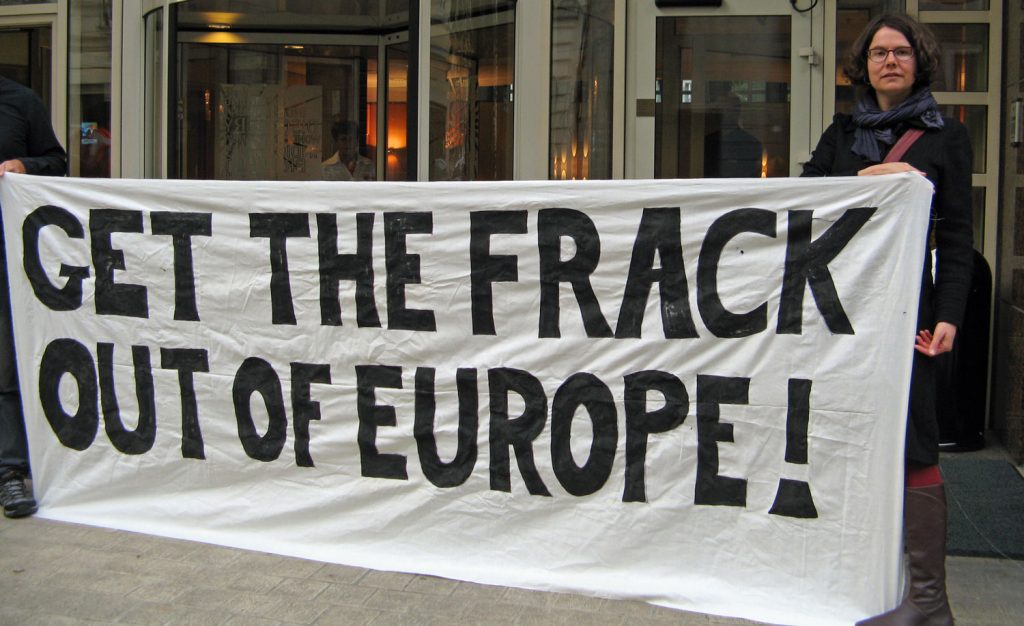Campaigners from Friends of the Earth Flanders and Brussels greeted delegates attending the European Gas Policy Forum with a simple message: fossil fuels like shale gas are unconventional, and unwanted in Europe.
The event, which took place at the Renaissance hotel in central Brussels was organised in partnership with Chevron and Exxon Mobil. It is part of a huge industry push to open up EU countries for unconventional gas extraction with minimum legislation and regulation. Friends of the Earth Flanders and Brussels provided information to balance the pro-shale gas speakers appearing at the conference.
Three recent studies by different units of the European Commission have found problems with shale gas, identifying high risks for health and the environment, and showing that unconventional gas extraction is more carbon intensive than other fossil fuels. Meanwhile public opposition to unconventional gas is spreading. A global day of protest on September 22 saw tens of thousands of citizens in more than 20 European countries calling for a stop to the development of the industry.
Nicola Freeman, shale gas campaigner for Friends of the Earth Flanders and Brussels said: “The Shale Gas industry is promoting itself here today as the new clean green transition fuel for Europe, and a solution to climate change, but the truth could not be more different.”
“Unconventional gas extraction is dangerous and dirty, has a climate impact at least that of coal, and threatens agriculture and water supplies with irreversible chemical pollution. We have to shut the door now on these unwanted fossil fuels and move to a low carbon future based on community owned renewables and energy efficiency.”
Friends of the Earth Flanders and Brussels (together with Climaxi) has launched a campaign to stop Dart Energy’s plans for coal bed methane extraction in Limburg. The Australian unconventional gas company, in partnership with regional development agency LRM has a budget exceeding EUR 10 million to exploit methane reserves in the Campine basin over the next 3 years.






